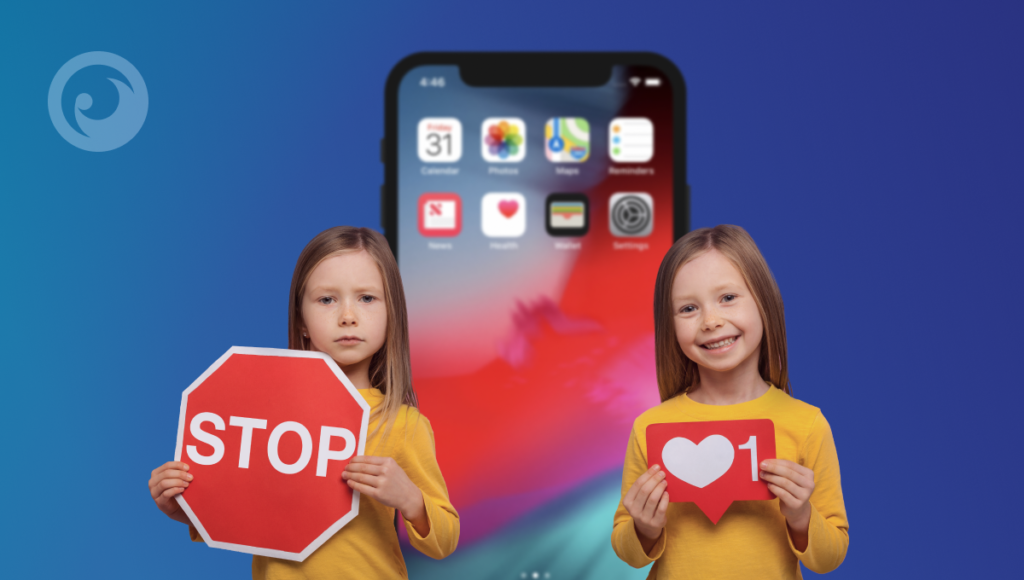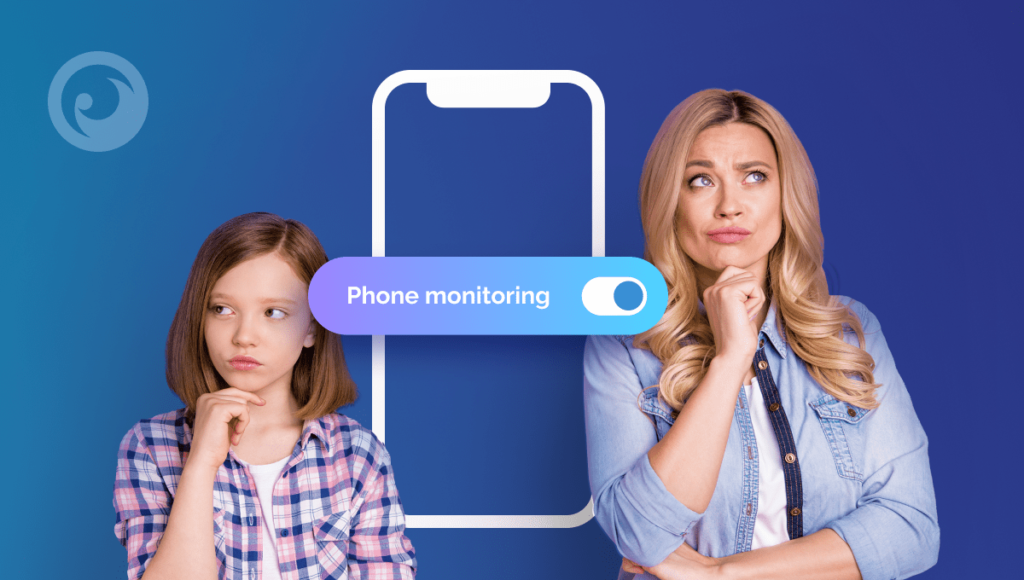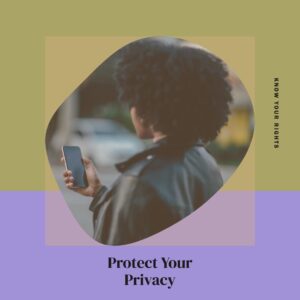The pervasive use of smartphones in modern society has raised concerns about privacy and the legality surrounding unauthorized access to personal devices. In this article, we explore the question of whether it is illegal to take someone’s phone without their permission.
Specifically, we examine the implications of using surveillance software like the Sphnix spy app, which can be covertly installed on a device, providing remote access to a plethora of personal information. By examining the legal aspects of this issue, we aim to shed light on the complexities surrounding smartphone privacy and the potential consequences of infringing upon it.

This image is property of www.thehivelaw.com.
Legal Ownership of Phones
Definition of Legal Ownership
Legal ownership of a phone refers to the individual or entity that has the recognized right to possess and control the device. The concept of legal ownership extends beyond the physical possession of the phone to encompass the legal rights and responsibilities associated with its use. In most jurisdictions, ownership is typically determined by factors such as purchase records, contracts, or proof of gift. It is essential to establish legal ownership as it forms the basis for various rights and responsibilities related to the phone.
Rights of Phone Owners
Phone owners enjoy several rights pertaining to their devices. These rights include the freedom to use their phones as they see fit, install applications, and customize settings according to their preferences. Additionally, phone owners have the right to protect their privacy and personal data stored on the device. Furthermore, they retain the right to grant or deny access to their phones to others and have their property safeguarded against theft or unauthorized use. Understanding these rights is crucial in navigating the legal landscape surrounding phone ownership and access.
Understanding Personal Privacy
Concept of Personal Privacy
Personal privacy is a fundamental human right that ensures individuals have control over the dissemination and use of their personal information. In the context of phones, personal privacy encompasses the ability to maintain confidentiality and control over phone conversations, text messages, photos, browsing history, and other personal data stored on the device. It is a vital aspect of autonomy and individual freedom, allowing individuals to express themselves, communicate, and interact with others without undue interference or surveillance.
Privacy Expectations
The expectation of privacy relating to a phone varies depending on the circumstances and the nature of the interaction. For example, individuals generally expect a higher level of privacy when engaged in private phone conversations or sending personal text messages compared to when using their devices in public spaces. The expectation of privacy can also differ across jurisdictions and may be influenced by cultural, legal, and societal factors. Understanding the reasonable expectations of privacy is essential in evaluating the legality of accessing someone’s phone without permission.
Legal Protection of Privacy
Privacy is protected by various laws and regulations aimed at safeguarding individuals from unwarranted intrusion or unauthorized access to their personal information. These protections may include constitutional provisions, statutory laws, and judicial precedents. In many jurisdictions, legal frameworks, such as data protection laws and privacy acts, have been established to delineate the rights and obligations of individuals and entities concerning personal privacy. Violating someone’s privacy without their consent or legal justification may lead to severe legal consequences.

This image is property of www.eyezy.com.
Unauthorized Access to Phones
Definition of Unauthorized Access
Unauthorized access to a phone refers to the act of gaining entry or obtaining information from a phone without the explicit permission or legal authority of the owner. This can occur through physical means, such as physically taking or stealing the device, or through digital means, such as hacking or using spy apps without consent. Unauthorized access is generally considered a violation of the owner’s privacy rights and is often subject to legal penalties and consequences.
Accessing Someone’s Phone Without Permission
Accessing someone’s phone without their permission is generally considered illegal and can be a breach of privacy laws. Taking or physically accessing a phone without the owner’s consent is considered theft or robbery, depending on the circumstances. Likewise, remotely installing spy apps, such as the infamous Sphnix spy app, on someone’s phone without their knowledge or authorization is a violation of their privacy rights.
Legal Consequences of Unauthorized Access
The legal consequences of unauthorized access to a phone can vary depending on the jurisdiction and the specific acts involved. In many jurisdictions, unauthorized access to a phone can be classified as a criminal offense, punishable by fines, imprisonment, or both. Additionally, the unauthorized access may also lead to civil lawsuits, where the affected individual seeks compensation for privacy invasion and other damages. It is crucial for individuals to understand the legal implications of accessing someone’s phone without permission to avoid potentially significant legal repercussions.
Illegal Actions Related to Phone Retrieval
Theft of a Phone
The theft of a phone occurs when an individual takes physical possession of someone’s phone without their consent and with the intention of permanently depriving them of the device. Theft is a criminal offense in most jurisdictions and is punishable by law. The theft of a phone not only violates the owner’s property rights but also compromises their privacy and personal data stored on the device.
Robbery of a Phone
Robbery involves the use or threat of force to take someone’s phone in their presence against their will. It is a more serious offense compared to theft, as it typically involves the element of violence or intimidation. Robbery is considered a grave offense and can result in severe criminal penalties. The act of robbing someone of their phone not only violates their physical and privacy rights but also causes emotional distress and potential harm to the victim.
Burglary to Obtain a Phone
Burglary typically involves entering a premises unlawfully with the intent to commit a crime, such as stealing a phone. It encompasses unauthorized entry into residences, offices, or other locations where the phone is stored. Burglary often carries more severe penalties compared to theft, as it involves trespassing and violating the security of a premises. Committing burglary to obtain a phone constitutes both a privacy invasion and a property theft, subject to legal consequences.
Receiving Stolen Property
Receiving stolen property refers to acquiring or possessing a phone that one knows or should reasonably know has been stolen. This offense extends to individuals who knowingly purchase or accept stolen phones. By participating in the market for stolen phones, individuals perpetuate theft and unauthorized access, contributing to the illegal circulation of stolen devices. The act of receiving stolen property is a criminal offense and may result in legal consequences.

This image is property of www.eyezy.com.
Exceptions to Authorized Phone Access
Law Enforcement and Judicial Orders
In certain circumstances, authorized phone access may be granted to law enforcement agencies or authorized individuals by virtue of legal processes, such as search warrants, court orders, or subpoenas. These legal mechanisms allow law enforcement agencies to access specific information on a phone as part of their investigative or evidence-collection processes. However, such authorized access is subject to strict legal requirements and oversight to prevent abuse and ensure individual rights are protected.
Parental Rights and Child Monitoring
Parents or legal guardians may have the right to access their children’s phones as part of their parental duties and responsibilities. This may include monitoring their child’s activities, ensuring their safety, and protecting them from potential harm. However, the extent of parental rights in accessing a child’s phone may vary depending on the jurisdiction and the age of the child. It is essential to consult local laws and regulations to understand the parameters of parental rights and responsibilities regarding phone access.
Employer Rights and Workplace Surveillance
Employers have certain rights to monitor and access phones used by employees within the scope of employment. This typically applies to company-owned phones or devices used for work-related purposes. Employers may install monitoring software or implement workplace surveillance measures to ensure compliance with company policies, prevent data breaches, and protect sensitive information. However, the extent of employer rights may be constrained by privacy laws, employment contracts, and collective bargaining agreements.
Consent and Permission
Understanding Consent
Consent, in the context of phone access, refers to the voluntary and informed agreement given by the phone owner for others to access their device or personal data. Consent is a fundamental principle in respecting an individual’s privacy and autonomy. To be valid, consent must be freely given, without coercion or deception, and the individual providing consent must have the capacity to understand the implications of their decision. Understanding the concept of consent is crucial in determining the legality of accessing someone’s phone.
Obtaining Permission to Access a Phone
Obtaining permission to access someone’s phone involves seeking explicit consent from the owner. This can be done through clear and unambiguous communication, preferably in written form, acknowledging the purpose and extent of the requested access. The phone owner should be fully aware of the potential consequences of granting access and have the freedom to either grant or deny permission. It is important to note that mere physical possession of a phone does not grant automatic permission to access its contents.
Withdrawal of Consent
Once consent has been granted to access a phone, it is essential to recognize that the owner retains the right to withdraw consent at any time. The withdrawal of consent revokes the authority previously granted and prohibits further access to the phone or personal data. It is imperative for individuals to respect the autonomy and privacy rights of phone owners and cease any unauthorized access once consent has been withdrawn.

Legal Alternatives for Phone Access
Properly Obtained Consent
The most legitimate and legally sound method of obtaining phone access is by securing the explicit consent of the owner. With properly obtained consent, all parties involved are aware of the purposes and extent of the requested access, reducing the risk of legal and ethical complications. This approach ensures respect for individual privacy rights and strengthens the legality of any subsequent actions taken with the owner’s authorization.
Legal Authorization by Relevant Authorities
In certain situations, relevant legal authorities, such as law enforcement agencies or judicial bodies, may provide explicit authorization for phone access. This may occur through the issuance of search warrants, court orders, or other legal mechanisms. Adhering to these legal processes ensures compliance with the law and safeguards the rights of all parties involved. It is crucial to respect and follow the legal authorization obtained from competent authorities to avoid potential legal consequences.
Use of Phone Tracking Apps with Consent
Phone tracking apps can be utilized with the informed consent of the owner for various purposes, such as location tracking or parental monitoring. These apps enable authorized individuals to access specific information related to the phone’s location, usage patterns, or other relevant data. However, it is essential to ensure that the use of such apps aligns with legal provisions, respects the privacy expectations of the owner, and complies with applicable laws and regulations.
Civil and Criminal Consequences
Civil Lawsuits for Privacy Invasion
Unauthorized access to a phone can result in civil lawsuits filed by the affected individuals seeking damages for privacy invasion, emotional distress, and other related harms. Civil lawsuits provide a legal avenue for individuals to seek compensation for the violation of their rights and establish case precedents for future privacy cases. The outcomes of these lawsuits may vary depending on the jurisdiction, the specific circumstances, and the evidence presented.
Criminal Charges for Unauthorized Access
Engaging in unauthorized access to a phone can lead to criminal charges in many jurisdictions. These charges may include offenses such as theft, robbery, burglary, fraud, or hacking, depending on the methods and intentions of the perpetrator. The severity of the charges and the potential penalties depend on factors such as the extent of unauthorized access, the harm caused, and the individual’s criminal history. It is important to note that criminal charges can result in significant legal repercussions, including fines, imprisonment, or both.
Penalties and Punishments
The penalties and punishments for unauthorized access to a phone can vary significantly based on the jurisdiction and the specific offense committed. In some cases, individuals found guilty of unauthorized access may face fines, probation, community service, or imprisonment. The severity of the penalties often corresponds to the harm caused, the intention behind the unauthorized access, and the individual’s criminal history. It is crucial to be aware of the potential legal consequences to ensure compliance with applicable laws and regulations.

This image is property of www.aclupa.org.
Preventive Measures and Security Measures for Phones
Password Protection and Biometrics
Implementing robust password protection and biometric security measures, such as fingerprints or facial recognition, is an effective way to deter unauthorized access to phones. Setting strong and unique passwords or passcodes adds an additional layer of security, making it more challenging for unauthorized individuals to gain access. Biometric authentication methods provide a convenient and secure way to ensure that only authorized individuals can unlock the phone.
Encryption and Data Security
Encrypting data stored on a phone helps safeguard personal information from unauthorized access. By encrypting data, even if the device falls into the wrong hands, the information remains inaccessible without the encryption key or password. Enabling encryption is a proactive measure to prevent privacy breaches and ensure the confidentiality of sensitive data stored on the phone.
Two-Factor Authentication
Enabling two-factor authentication (2FA) adds an extra level of security to phone access. With 2FA, the phone owner must provide an additional verification method, such as a unique code sent to their trusted device or email, in addition to the password or passcode. This helps mitigate the risk of unauthorized access by requiring multiple forms of authentication, making it considerably more difficult for malicious actors to gain unauthorized entry.
Regular Software Updates
Regularly updating phone software is essential for maintaining security and protecting against potential vulnerabilities. Software updates often contain bug fixes, security patches, and enhancements that address known issues and vulnerabilities. By keeping their devices up to date, phone owners can ensure that they have the latest security features and protections against unauthorized access or exploitation.
Conclusion
Understanding the legal landscape surrounding phone ownership, privacy, and unauthorized access is crucial in maintaining ethical conduct and avoiding legal complications. Phone owners have rights regarding the control and protection of their devices and personal information. Unauthorized access to phones is generally illegal and subject to both civil and criminal consequences. Exceptions exist for authorized access, such as law enforcement and parental rights, but are subject to specific legal requirements and limitations. Ensuring proper consent and permission is obtained before accessing a phone, and adhering to legal alternatives when necessary, helps prevent privacy invasions and legal conflicts. Implementing preventive and security measures further protects phones and personal data from unauthorized access, preserving the privacy and rights of individuals.

